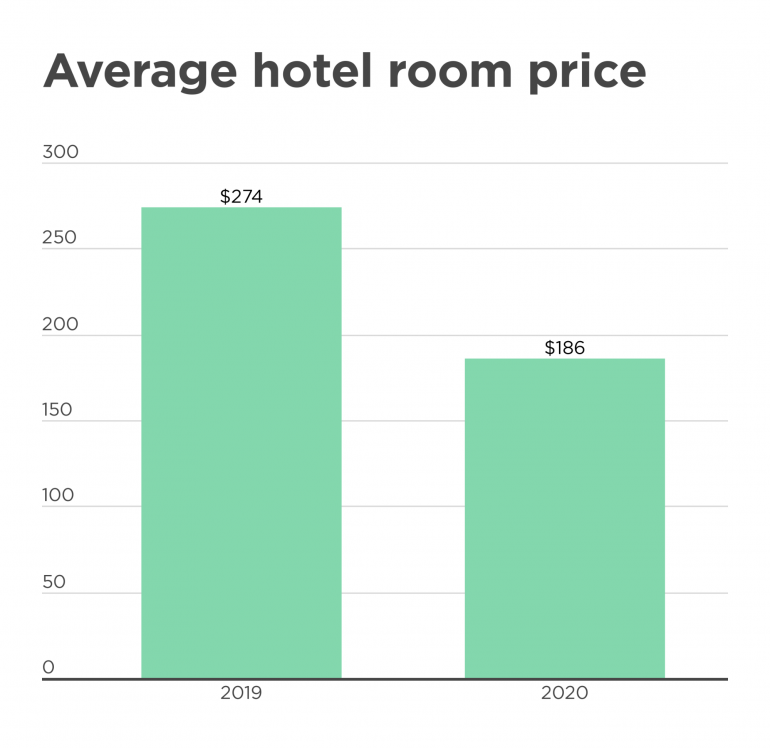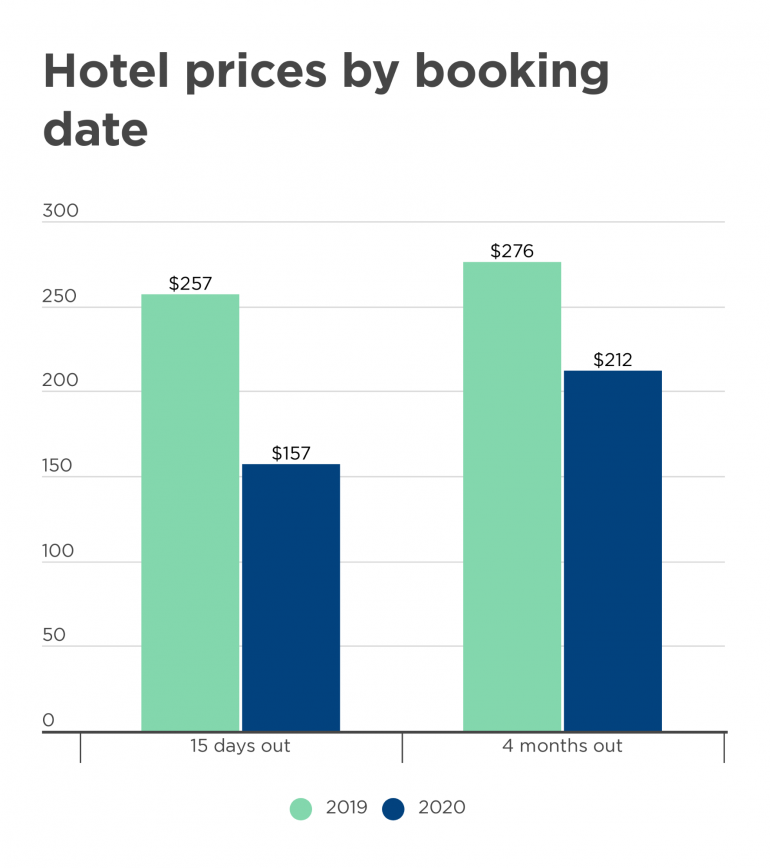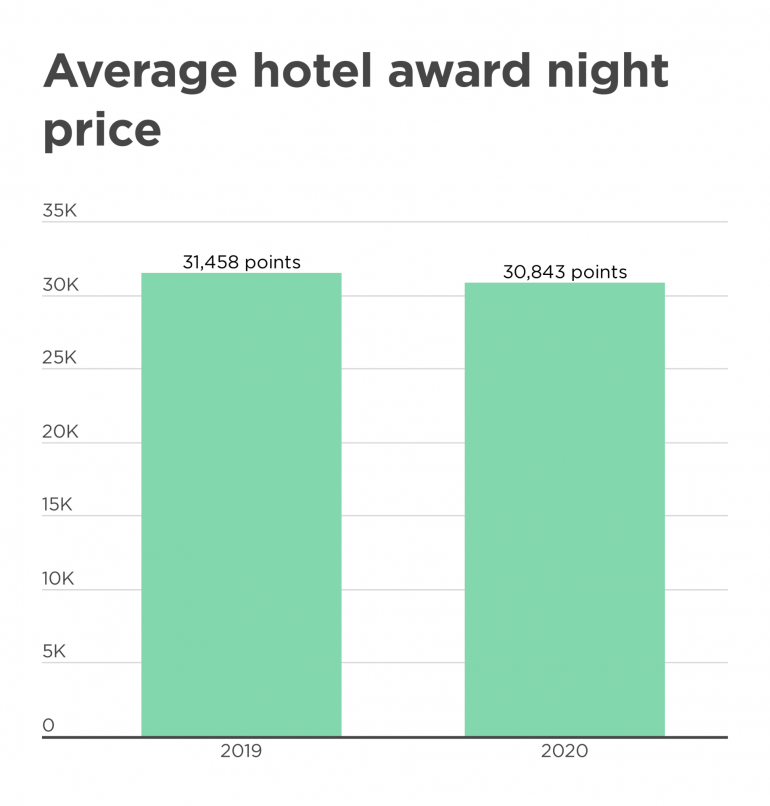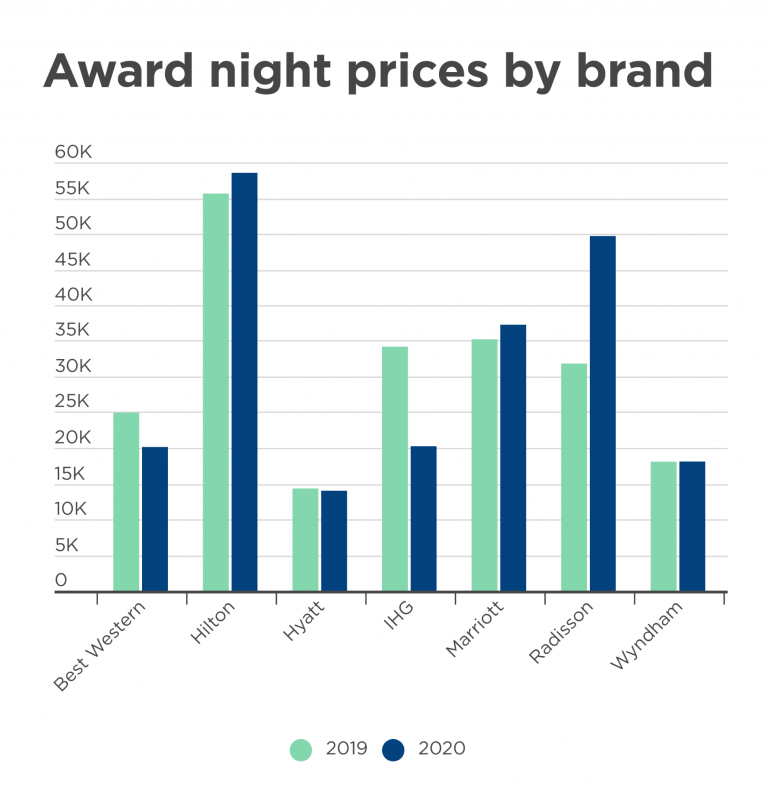The world is topsy-turvy, and the travel industry has been hit hard.
Holding a U.S. passport allows travel to almost nowhere. Air travel remains a receding memory for many. And many travelers are hitting the road, sometimes in brand-new RVs.
But what about hotels? Major brands have scrambled to assuage wary travelers with improved health procedures and flexible booking — but is it working? There’s one good way to tell in real time whether hotels are seeing an uptick in demand: Look at prices.
Here we ran the numbers to see how hotel prices have changed in 2020. We compared prices at over 200 U.S. hotels across seven major brands to the same data we collected this time last year. That is, we compared the room prices at the exact same hotels for 2020 and 2019 bookings. This gives us an apples-to-apples comparison of how prices have changed across the country.
Prices have dropped, but it’s complicated
So what’s happening? The short answer is that hotel prices have gone down significantly. Overall, we found an average price of $186 per night in 2020 compared to $274 per night at the same hotels in 2019 — a 32% drop.

However, this difference was more pronounced for bookings made within 15 days of check-in compared to those made four months in advance. Closer-in bookings were cheaper overall and much cheaper compared with the same booking timing from 2019.

Last-minute bookings in 2020 were much cheaper on average ($157) compared to 2019 ($257), while bookings made further out were also cheaper, but not as dramatically. That is, waiting to book might save you more money than making reservations in advance right now.
What’s happening here? Maybe hotels are holding out hope for a rebound in travel later this year and are keeping prices high. Or maybe they are adding a premium for the flexible policies they have introduced by raising prices for longer-term plans, effectively taxing travelers who want to nail down their travel in advance.
What about points?
Since the cash price of hotel rooms has plummeted in 2020, you might expect award bookings (those made with hotel points) to follow suit. But that’s not what we found.

This consistency is somewhat unsurprising since many hotel programs use “award charts,” which set specific nightly point rates for each property regardless of demand. Notably, the Holiday Inn brand IHG, which has eliminated award charts, was the only major brand with a significant reduction in award pricing.

Other brands remained mostly flat or (in the case of Radisson) actually increased their award night rates in 2020. We usually decry such “dynamic” award pricing, as it renders point maximization difficult. But these are strange times, and IHG’s fluid award prices have proved beneficial to customers.
Takeaways
We compared prices for the exact same hotels in 2019 and 2020 to see how they've changed. In general, we found what you’d expect: lower overall prices. Yet there were two important takeaways from diving deeper into the data:
- For now, last-minute bookings yield more savings than those made far in advance.
- Think twice before using points, unless they’re with a hotel that offers dynamic award pricing such as IHG.
Finally, it’s worth keeping in mind that our sample of hotels was largely urban. These city properties have likely seen the largest drop in demand in 2020 and a corresponding drop in prices. It’s also worth keeping in mind that these prices, like the world of 2020, are constantly changing.
More From NerdWallet
- How to Plan Holiday Travel for Maximum Flexibility in 2020
- Why Won’t the FAA Require Masks?
- Smart Money Podcast: How to Travel Safely, and How to Handle Old Debts
The article Analysis: How Have Hotel Prices Changed in 2020 vs. 2019? originally appeared on NerdWallet.
The views and opinions expressed herein are the views and opinions of the author and do not necessarily reflect those of Nasdaq, Inc.





%20Neutral%20Recommendation%20%7C%20Nasdaq&_biz_n=5&rnd=38476&cdn_o=a&_biz_z=1743331971791)



